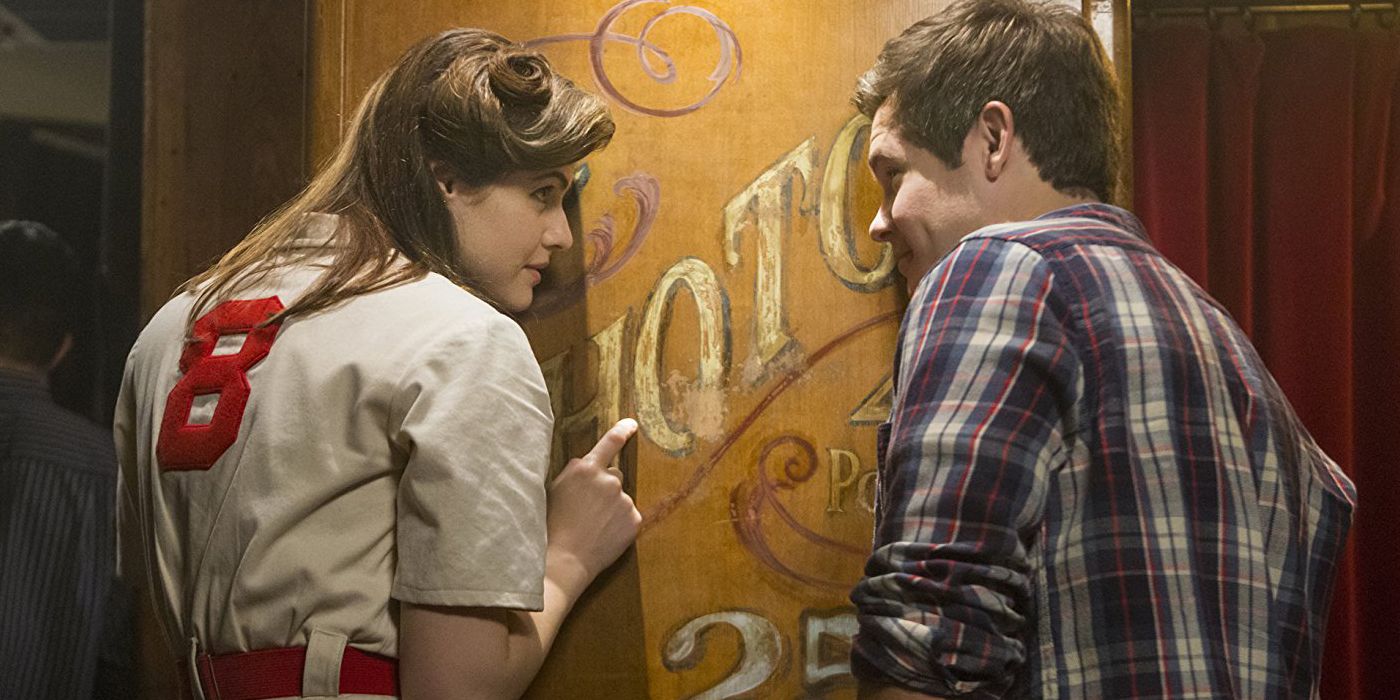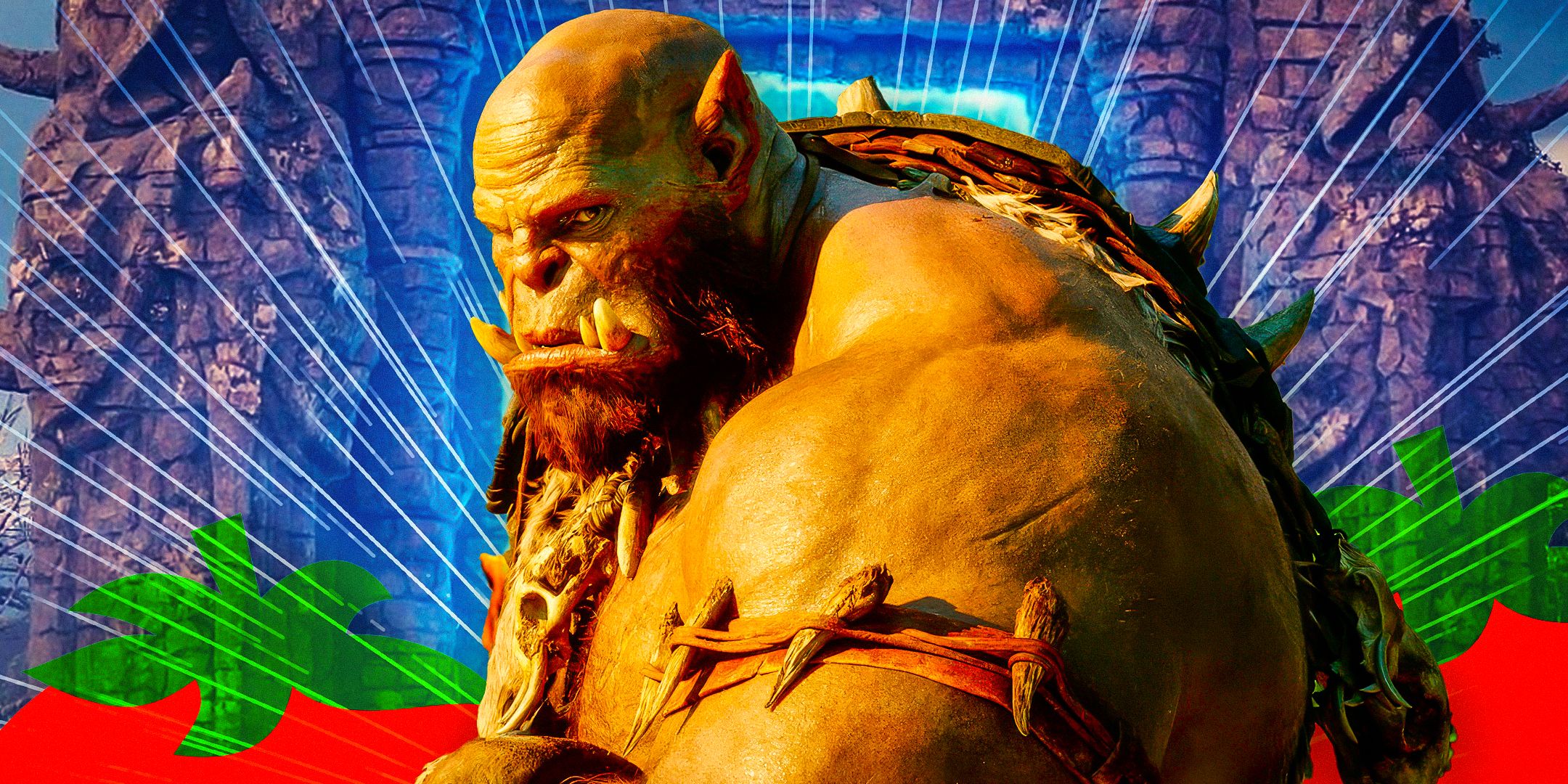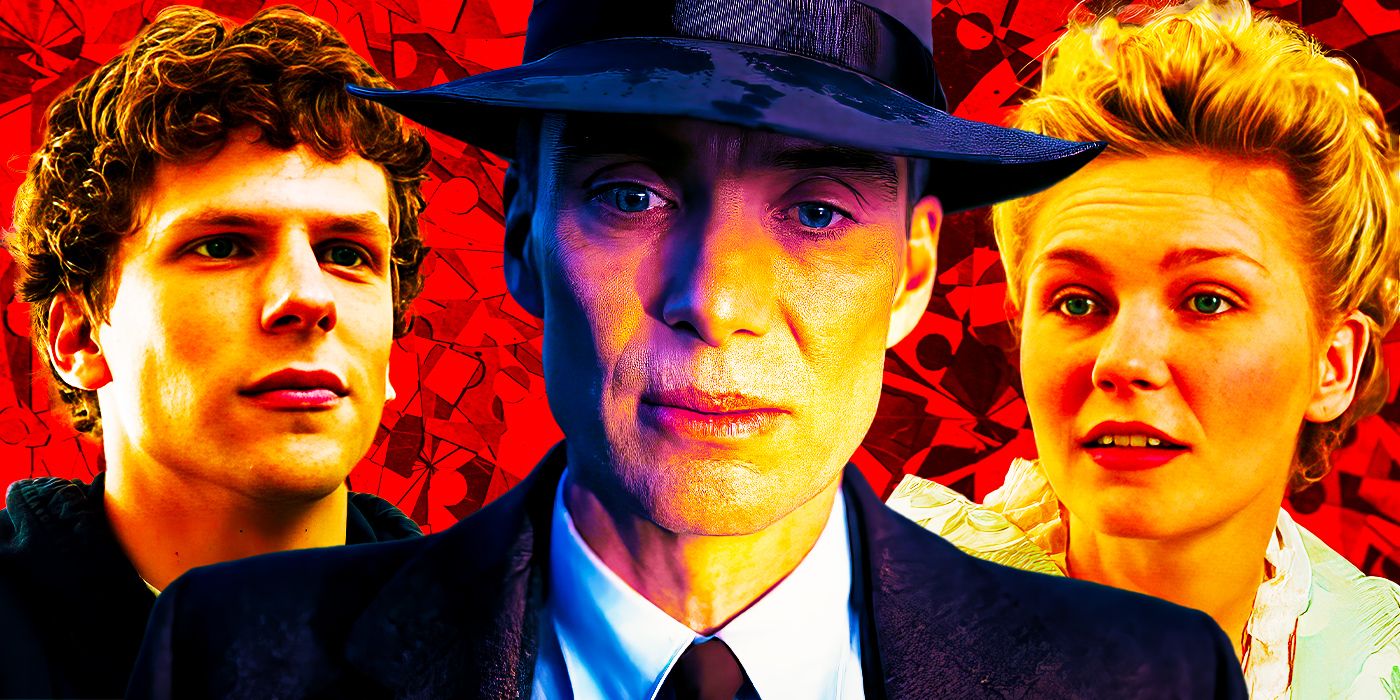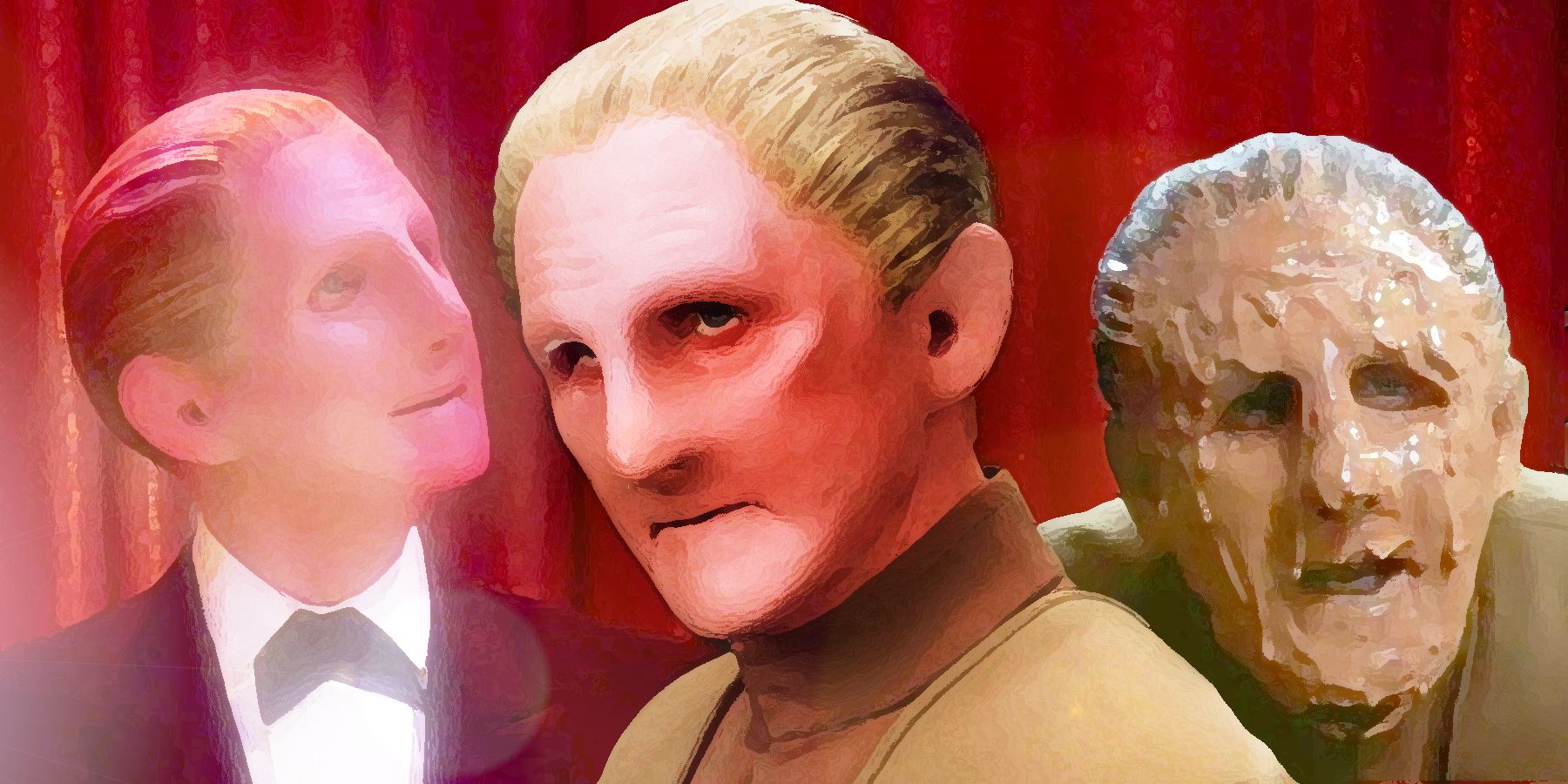As The King himself once said at a 1972 press conference in Madison Square Garden, “The image is one thing and the human being is another…it’s very hard to live up to the image,” and Baz Luhrmann has given fans a chance to reflect on both the human and the icon in his electrifying musical biopic Elvis. The film chronicles Elvis Presley’s early days as a poor boy in Mississippi, through his rise to stardom under manager Colonel Tom Parker, and ultimately, his tragic fall from grace.
A cautionary tale that is also a triumphant celebration of the human spirit’s ability to soar despite adversity, Elvis places emphasis on the Black musicians that inspired Elvis, includes stunning cinematography that makes fans feel as though they’re attending a live concert, and showcases moving performances by both Austin Butler in the title role and Tom Hanks as his Salieri-like manager Col. Parker, making this the definitive story of The King of Rock ‘n’ Roll.
Austin Butler Transforms Into Elvis
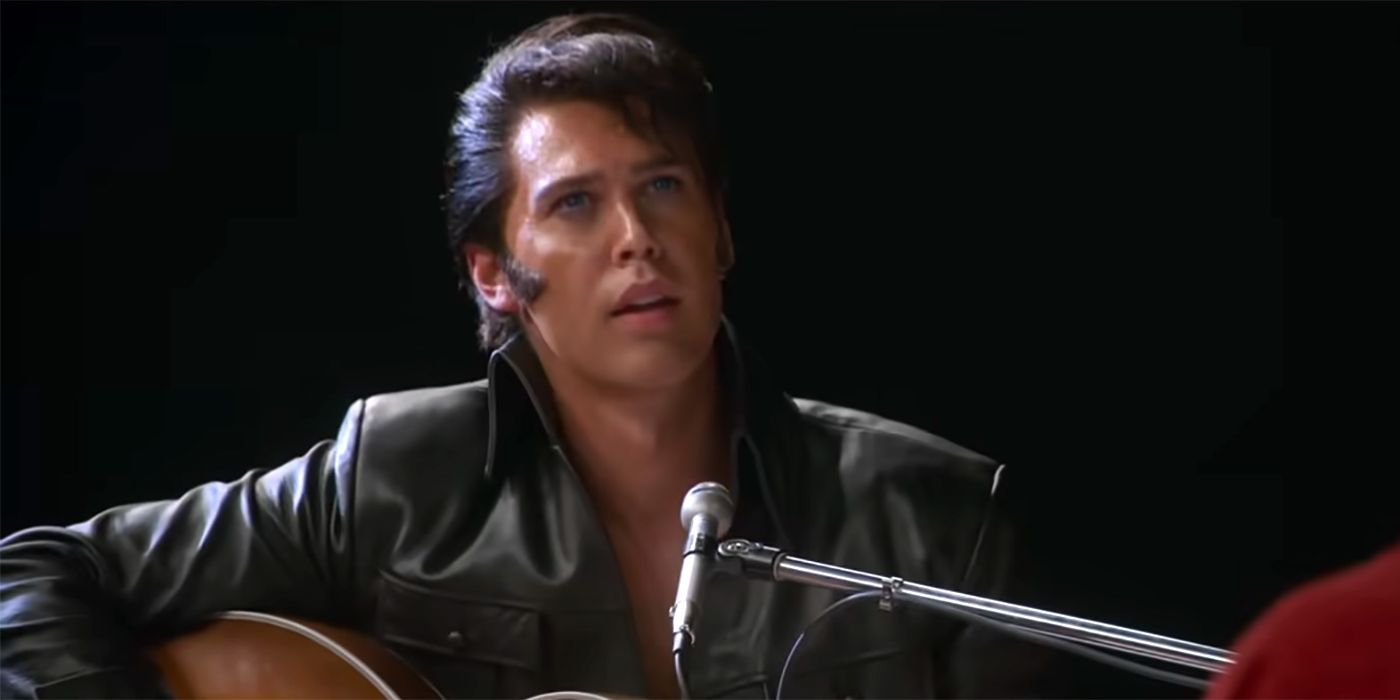
It wasn’t enough to have Elvis’s smoldering good looks – to elevate his performance beyond simple Elvis impersonator, Austin Butler spent two years obsessing over the singer’s catalog. Behind the scenes of Elvis, he was listening to interviews from the Graceland archives, taking voice lessons, and replicating every mannerism, from the cadence of Elvis’s voice to the way he walked.
He may not look like Elvis from every angle, but Butler has the essential Elvis ingredient; he is captivating. Like Elvis, he slinks through the movie with panther-like grace, somehow embodying The King’s amalgamation of a good Christian boy and sultry sex symbol. To top it off, he does his own singing, guitar playing, and dancing, which captures the transcendent experience of seeing Elvis live.
Tom Hanks Makes Colonel Tom Parker A Complex Villain
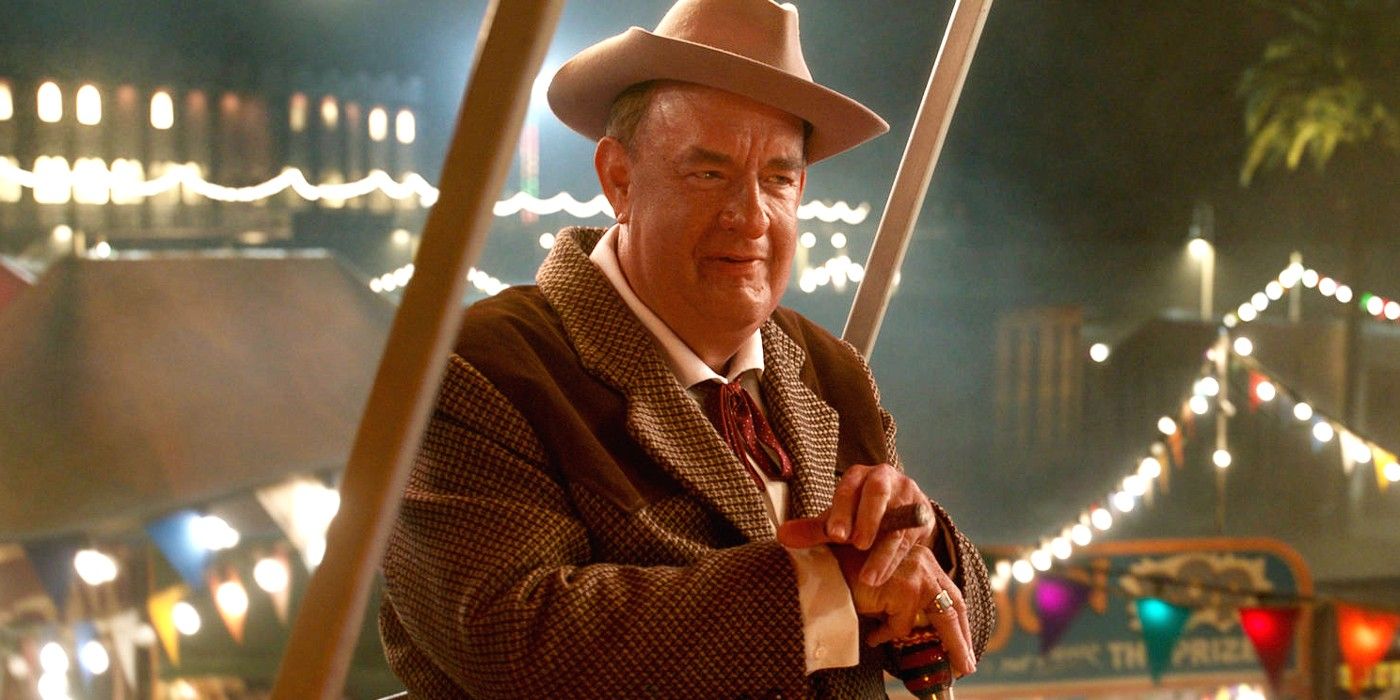
In order to buy that Elvis could be hoodwinked by carnival conman and country music promoter “Colonel” Tom Parker, the audience has to be, too, and who better to accomplish the snow job than America’s most convivial actor Tom Hanks? As Hanks reveals in his avuncular, demure performance, Col. Parker became Elvis’s manager because he seemed trustworthy, and the boy from Mississippi knew nothing about the business side of making music.
The Colonel comes along twirling a cane, not a mustache, with a twinkle in his eyes as benign as Saint Nick’s, not the glint from imagined dollar signs. He usurps Elvis’s life far beyond business proceedings because while he can mimic empathy, feels none of it himself, and has no issue working Elvis to death. Far from a caricature, this is one of Hanks’ greatest characters because he remembers to make Tom Parker a person (albeit an unlikable one) who controlled his puppet by degrees.
Highlights Elvis’s Love Of Black Culture & Music
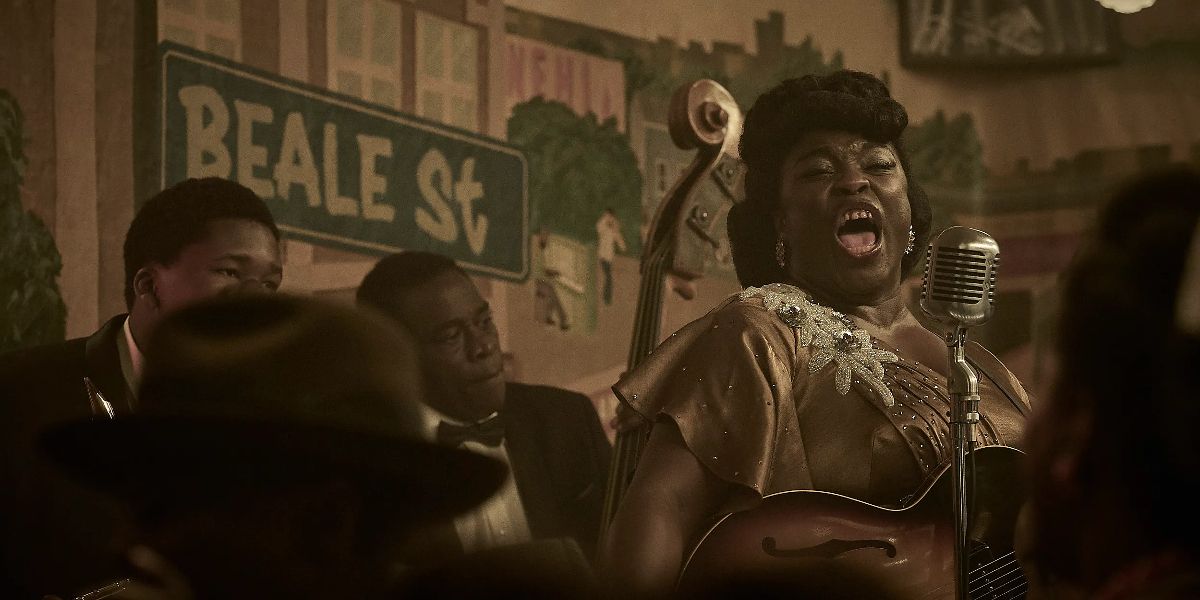
Luhrmann makes sure to focus on Elvis’s love of Black music and styles of dancing by showing him sneaking off as a teenager at every opportunity to spend time in all-Black areas of Memphis like Beale street, where he was often the only white person attending concerts and fundraisers.
When asked about his inspirations and influences, Elvis is quick to give credit where credit is due, mentioning the names of Fats Domino and B.B. King as the real rock ‘n’ roll royalty. While highlighting this period of time doesn’t diminish the fact that Elvis made infinitely more money from performing the same songs as Black musicians, it does help to illustrate how Elvis’s interpretations made certain Black music accessible to a society that still believed in segregation.
Reveals Small Details About Elvis’s Personality
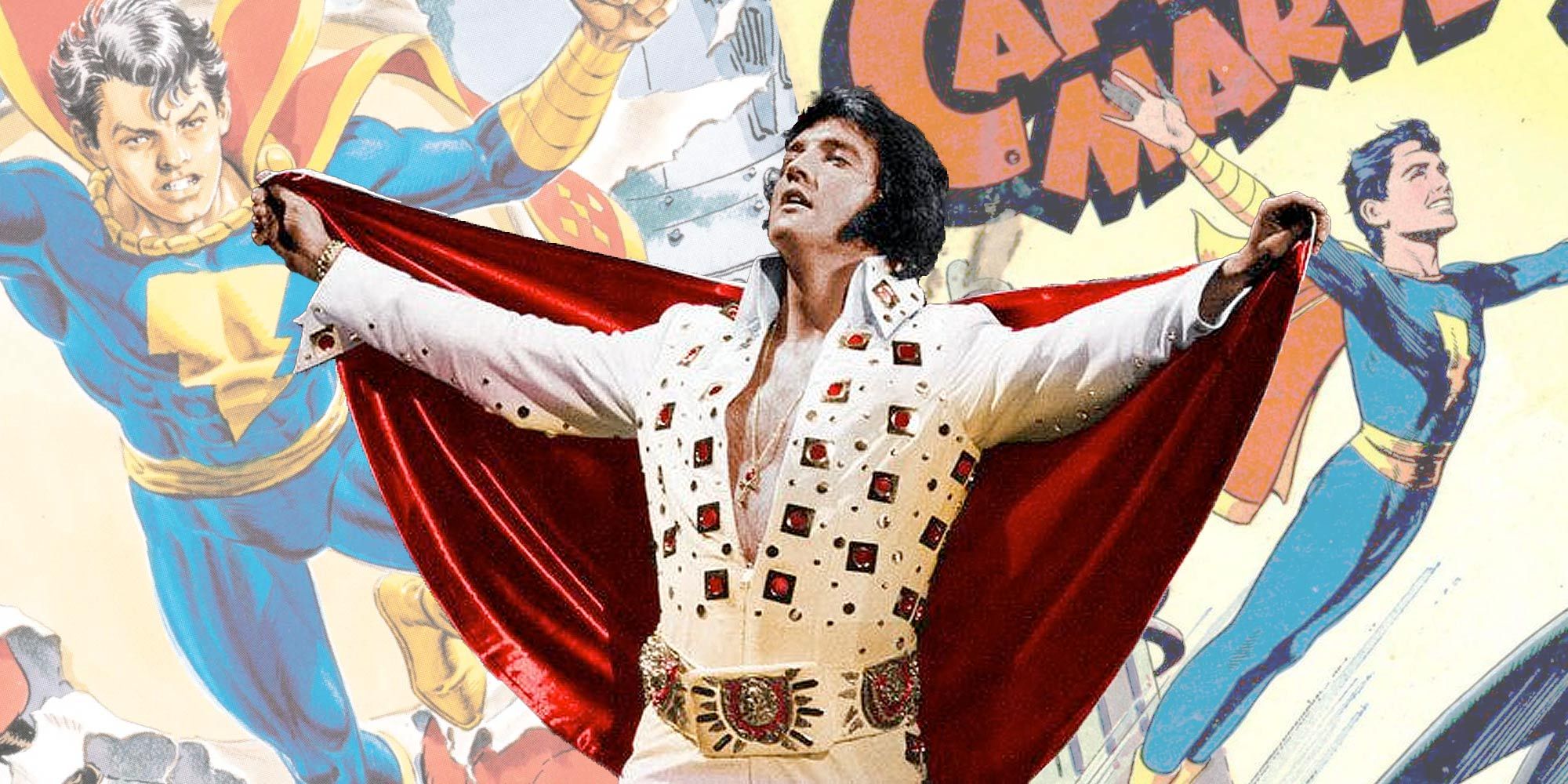
At the 1970 Ten Outstanding Young Men of the Nation Award ceremony, Elvis said, “I read comic books, and I was the hero of the comic book.” As it turns out, Elvis was a comic nerd, using the adventures of Captain Marvel Jr. to escape an impoverished home life. “He also loved to read; philosophy books, astrology books, and American history, to name just a few genres. Elvis takes its time exploring the small details that give The King a personality beyond the built-in fascination associated with his icon status.
Elvis is depicted as an incredibly loyal person, devoted to his family and close circle of childhood friends in the Memphis Mafia. From the moment he purchases Graceland at just 21, he fills the mansion and surrounding grounds with people, hosting BBQs, go-kart races, and activities that create a positive and dynamic atmosphere.
Attention To Detail With Costumes And Set Design
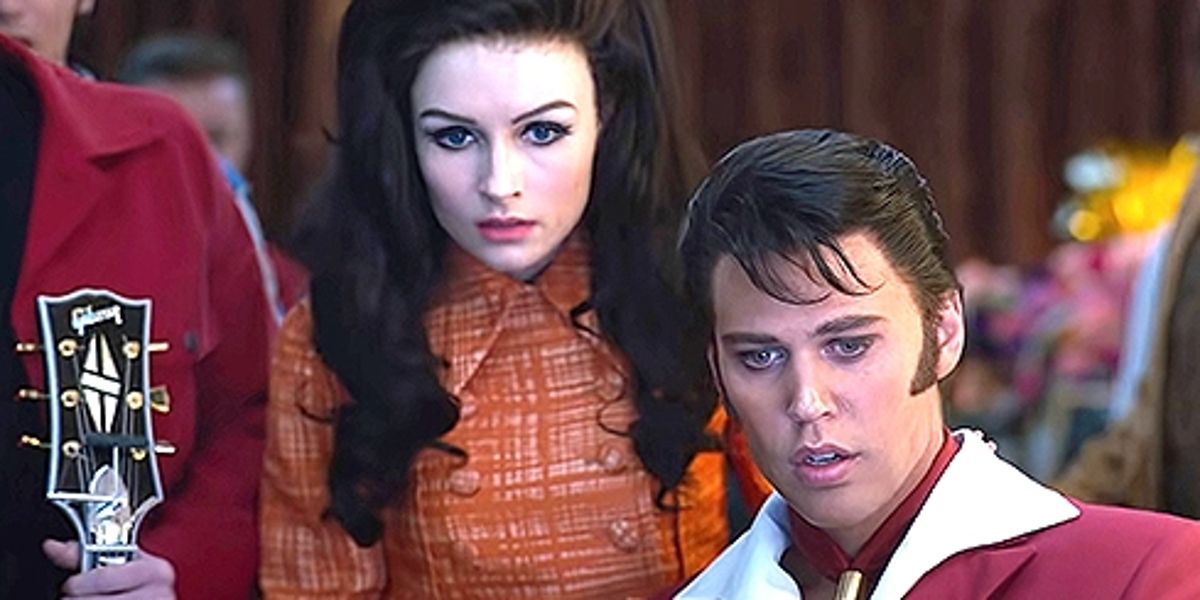
Catherine Martin has been the costume designer behind Baz Luhrmann’s best movies, and in Elvis has meticulously recreated period clothing from the ’50s, ’60s, and ’70s, including all of Elvis’s most famous looks, from the pink suit he wore to perform Heartbreak Hotel, to the all-black leather look for his ’68 Comeback Special.
Despite being filmed in Australia, Elvis’s hometown of Tupelo, Mississippi, and his honorary hometown of Memphis, Tennessee are lovingly recreated, as well as the spectacular locations of Elvis’s concerts. Several of his songs are played in their entirety, creating the illusion of an Elvis concert.
Traces Elvis’s Impact On Pop Culture
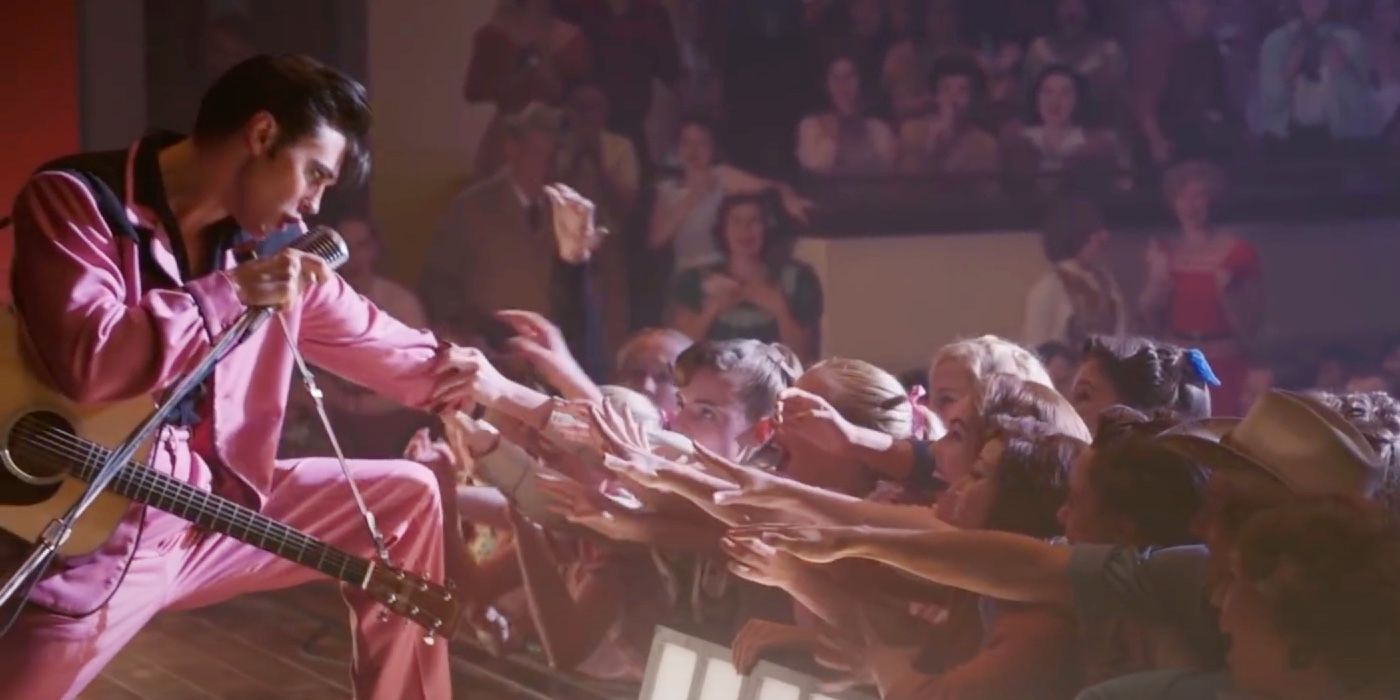
Luhrmann’s over-the-top, maximalist approach is used to great effect in the first half of the movie, which focuses on the frenetic nature of Elvis’s rise to stardom in the ’50s. By the latter half, the movie is as sluggish as the Elvis of the ’70s, depicted with even more gaudiness, but the filmmaking seems deliberately mired in style over substance because The King himself has become a prisoner of his own excess.
These methods may be the only ones able to interpret Elvis’s effect on pop culture at the time, as a dizzying and electrifying injection into mainstream America just before the Civil Rights movement. There’s a dream-like, heightened state of reality to the movie that dizzies as much as it dazzles, but it achieves the proper effect.
Shows How Elvis Grew Up
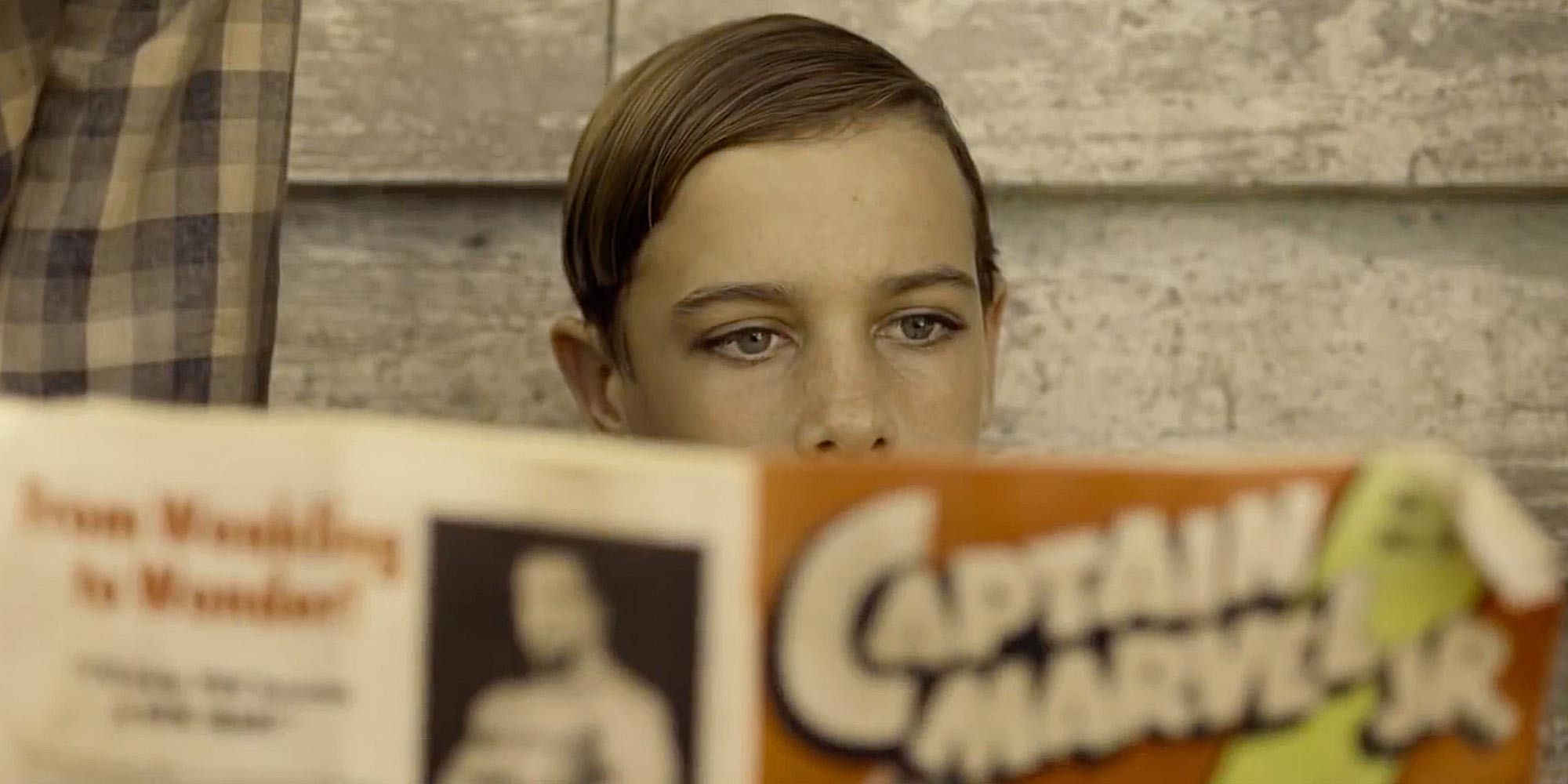
Despite being associated with glamor and fame, The King grew up very poor in an area of Mississippi adjacent to all-black communities. His parents were sharecroppers, and he made his living as a truck driver making local deliveries. Raised in the church, he was drawn to gospel hymns because of their celebratory nature and was known to attend spiritual revivals as well.
Showing Elvis’s humble roots not only shows how much he overcame to be one of the most famous people of the 20th century but where he acquired his worldview. He is seen to be a humble, polite, and sensitive artist who feels a great amount of compassion for his fellow man. His reaction to the death of figures he admired, like Martin Luther King, also showcase his belief in equality and fairness, reinforced by his upbringing.
Shows The Incremental Influence Of Colonel Tom Parker
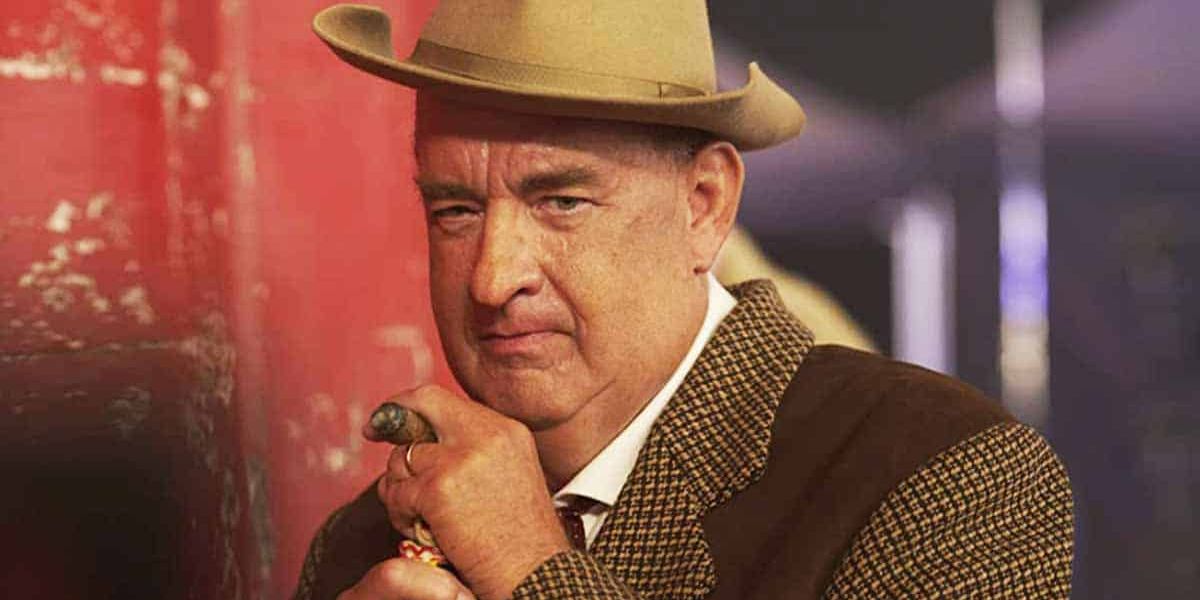
Elvis was a long con for Colonel Tom Parker, but he wasn’t without a twisted sense of morality. Despite seeing Elvis as a cash cow and a product to market with t-shirts and buttons, he does have some paternal feelings of protection for Elvis. As he acquires more control over Elvis’s life, such as through a military stint for publicity, or via deals brokered without Elvis’s knowledge in backrooms, he is careful not to overplay his hand, making him one of the best characters in the movie.
By the time Elvis realizes how far the Colonel has his claws sunk into him, it’s too late. Elvis points out various times when the entertainer should have broken off from Parker and followed a different path, but the Colonel’s ability to manipulate him under the guise of looking out for his best interests is always too strong.
Makes Elvis Feel Like A Real Person
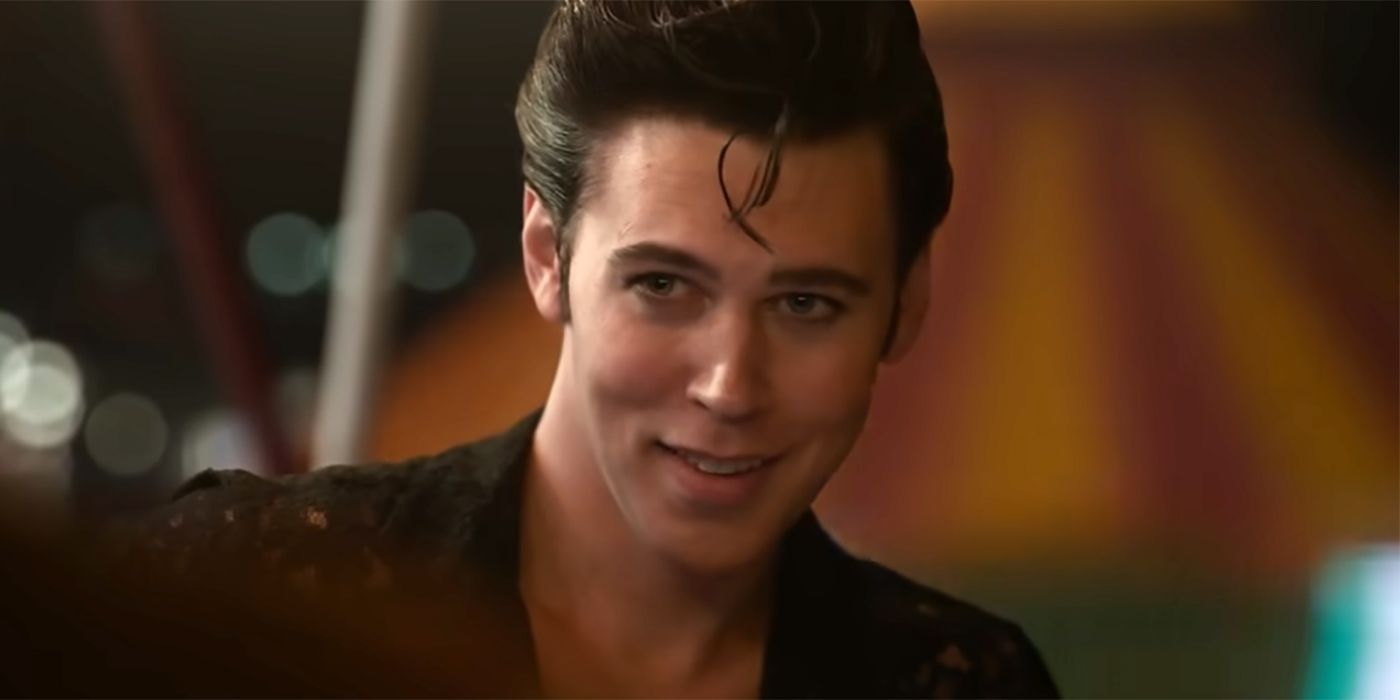
Because everyone knows how Elvis will end, with Elvis a shadow of his former self, depressed, drug-addled, and lonely, there is a tragic aura that surrounds the movie. That being said, Butler makes the most of The King’s Herculean attempt at living out his dreams, a true Byronic hero who was never happier than when he was performing for his fans.
Throughout every decade of his career, Elvis remained a shy boy from Mississippi who never felt completely understood, and expressed himself the best through his voice and his body movements. In the MGM documentary Elvis on Tour, Elvis told an interview, “I’ve never gotten over what they call stagefright. I go through it every show…it’s like the first time, every time.” Elvis has never been more relatable than in this movie, where for a rock legend, he feels much more down to earth.


